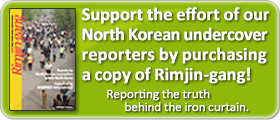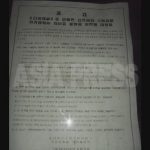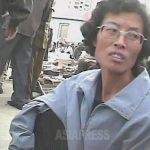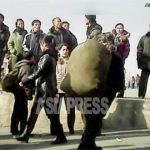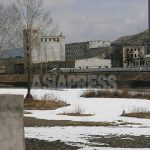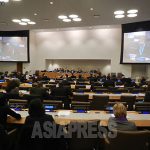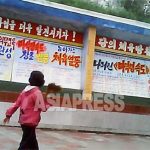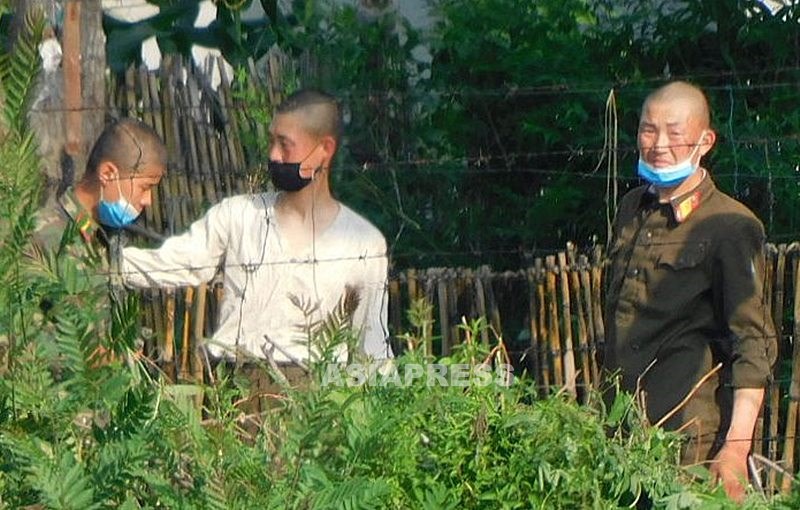
These days, there is dearth of information coming from within North Korea. Since the Kim Jong-un regime closed the Chinese border last January to prevent the influx of the coronavirus, there has been an almost complete absence of human traffic. No tourists, foreign media, or businesspeople have been allowed to enter the country for a year and a half, and North Koreans have hardly been allowed to leave.
Even the Choson Sinbo, the official newspaper of the Korean Confederation in Japan, and Russian News Agency, TASS, have been without a representative. The Chinese Xinhua News Agency, meanwhile, replied that they could not confirm the withdrawal of their reporters from Pyongyang.
International mail has also come to a complete halt due to the refusal to accept mail from China. All international organization employees stationed in Pyongyang have left the country, and the number of officers there has dropped to zero. The number of diplomats has also been greatly reduced. Since I started covering North Korea in 1993, I have never experienced such a strict and prolonged "national isolation".
As live information from inside North Korea has dried up, ASIAPRESS has managed to keep in touch with our reporting partners living in various parts of North Korea using Chinese cell phones that we have smuggled across. However, we are struggling to maintain our work due to an intense crackdown through radio wave detection. Despite this, we have still received much information on the country’s isolation and the plight of local residents.
◆ Excessive control measures leads to the disappearance of pharmaceuticals
As of early July 2021, there is no indication that coronavirus has spread within North Korea. It can be said that this is the result of the powerful measures of border blockades and domestic controls. While it is difficult to believe the state’s claim that there has not been a single case of infection, we can see that there has been some easing of controls recently, such as the resumption of face-to-face classes at schools and the mobilization of urban residents to help farmers.
Despite there being no COVID-19 outbreak, there is still widespread unrest in the country. A side effect of the strong quarantine measures has been a severe economic deterioration, and the situation has already reached the level of a humanitarian crisis. A year ago, residents were saying, "I'm more afraid of hunger than of coronavirus." Unfortunately, these fears have been realized, as we will discuss later.
After the news of the COVID-19 outbreak in Wuhan, China, last January, the North Korean authorities quickly banned foreigners from entering the country. In addition, all trade ports on the border rivers of Yalu River and the Tumen River were blocked, and imports and exports were strongly restricted. And that's not all. The government also imposed excessive and violent restrictions on movement within the country, quarantining anyone with cold-like symptoms such as a cough, and completely locking down residential areas for two weeks. As such, the economy quickly took a turn for the worse.
Firstly, the prices of Chinese products skyrocketed due to the suspension of imports. The price of cooking oil, seasonings, etc., increased several dozen times. Due to the disruption of medicine imports from China, many elderly people are dying from tuberculosis, injuries, food poisoning, colds, and other diseases that cannot be treated.
In addition, the ban on the movement of people and goods to other provinces has led to a sharp decline in jobs in transportation and cargo handling. Many factories and mines have reduced or stopped operations because they are no longer receiving machine parts, raw materials, and supplies from China.
The stagnation of market activities led to a sharp decrease in ordinary people's cash income. It also reduced the income of the police, the government, and the leaders of the Workers' Party of Korea, who usually rely on bribes. The circulation of both money and goods was stagnant and impoverishment deepened day by day. As in Japan, it was the vulnerable groups, such as the elderly, single mothers, and families with sick members, who were the first to fall into distress.
◆ Increasing number of beggars and prostitutes
What do people do when they have difficulties in living? Our reporting partners explained as follows:
"When we run out of cash, we borrow rice or corn from our neighbours or acquaintances. If that becomes too difficult, we pawn or sell our household goods. It is a common sight to see a debt collector barging in and taking all the household goods that have been pledged as collateral- down to the pots and pans. The last resort is to turn to crime or to sell the house."
In North Korea, houses are state-owned and cannot be bought and sold without permission. Still, since the 1990s, transactions have been conducted by buying and selling certificates of residence registration, called "entry certificates," thus establishing a housing market.
Those who have sold their houses have no choice but to pay money to secure a place to sleep in someone else's warehouse or to sleep on the streets. Since early summer last year, we have received reports of an increase in the number of "kochebi" (child vagrants) from all over the country. The sight of abandoned children and older people begging in the marketplace has become commonplace, reminiscent of the great famine of the late 1990s.
Similarly heart breaking were reports that prostitution is on the rise in every city.
"There are married women who commute from rural areas to urban areas for prostitution. In the cities, there are also small prostitution organizations that send women to their clients by communicating with them on cell phones. Most of them are between 20 and 30 years old, and many poor girls are still as young as children. Because of the recent crackdown, they usually ride their bicycles to the places they are called to. Most of the clients are officials and rich people. The women get 20 RMB per visit, or 30 to 50 yuan if they are lucky. Some men even give them 300 yuan a month to live nearby. It's hard to sell your body in North Korea. I can't imagine how hard life must have been for them to turn to prostitution." (1 yuan is about 0.15 USD) Continue 2>>
- <Inside N. Korea>The Death Toll is Finally Starting to Rise. A Serious Humanitarian Crisis is a Man-made Disaster. ISHIMARU Jiro (2021-07-05)
- <Inside N. Korea> Poverty-Induced Civil Unrest Prompts Orders to Strengthen Security Around Military Bases, Police Stations, and Kim Family Statues (2021-06-28)
- <Inside N. Korea> Markets in Turmoil Across the Country: Households Register to Receive Chinese Aid and Trade Grinds to Halt as Food Prices Hit Yearly High (2021-06-23)
- <Farm investigation> Poor Harvest Predicted Already: 30% of Farms are Being Worked by "Food Insecure Households" (2021-06-21)
- <Inside N. Korea> Soaring Food Prices Cause Market Chaos: Elderly and Poor Starve as Price of Corn More Than Doubles (2021-06-16)
Editor’s notes on North Korean reporters
ARCHIVE(pdf) >>
DPRK MAP >>
